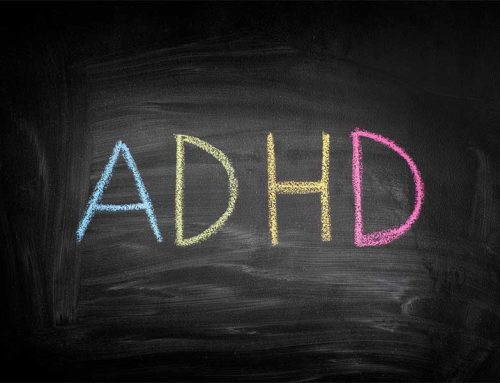The issue: long wait times between diagnosis and starting the titration process
We want to update and reassure patients about changes to the titration service for our adult patients who are (or will be) receiving treatment for ADHD via the NHS. We have run a successful adult ADHD service for several years, but we continue to learn. Despite rapid and constant recruitment of clinicians, one issue we have always struggled with is reducing the time people need to wait to start their ADHD treatment.
There are several reasons for this, but one large issue is that titration is ‘open ended’. That is, we adopted an ethos of taking patients through titration at their own pace, until we optimise their treatment. This is a patient-centred approach for an individual in titration, but it is not the best approach with regards to managing our waiting list, nor is it popular with NHS commissioners, as it makes it impossible for them to budget accurately.
There is also the whole question of whether continuing to tinker with medication actually helps: there is a significant percentage of people for whom the medications available just do not work or who are never going to experience more than a partial response. Clinically, there is a good case for saying that we need to more rapidly identify those patients, and give them a route to accessing better specialist non-pharmacological interventions. With medication, there are cases where one has to say that the response is “good enough.”
We therefore need to re-evaluate what we are doing to improve and streamline our model. We need to work more closely with our NHS partners to reassure them that we want to help them make the most efficient use of the budgets available for ADHD. This is about helping as many people as possible, using finite resources responsibly and effectively.
The (partial) solution:
With this in mind, we are moving to a model where titration will be commissioned in 12-week blocks. That is, when you start titration, you will have 12 weeks to complete titration. However, if a patient and their clinician agree that there is a clinical need to extend beyond 12 weeks, we can seek further additional funding for a further 12-week block.
The decision will always be centred around clinical need, such as the inability to tolerate medication tried so far, as well as medication so far proving ineffective. Non-clinical reasons for needing additional time are unlikely to receive further funding, such as inadequate engagement with the titration process due to other conditions or stresses, or wanting to make minor adjustments to treatment plans that are unlikely to yield significant clinical benefit.
We believe that by working more closely with our patients and our NHS partners in this way, we will be able to help and support more adults with ADHD in a responsible and effective way. We are aware that this approach will not suit everyone, and it might be that we need to recommend discharge for some people, with a plan for re-referral when other conditions have been met to maximise the likelihood of effective treatment. Your clinicians will make recommendations and discuss options with you during your journey with us to keep our care patient centred.
Jon Chanter, CEO, Psychiatry-UK







Some genuinely interesting details you have written.Assisted me a lot, just what I was searching for : D.
Thank you for letting us know this article has been helpful. Your time is very much appreciated.
Hello
I hope you ate well
You picked up my doctors referral in June. I still haven’t had an assessment yet?
Is this normal?
Luke
Hi Luke – Thank you for getting in touch. If we have contacted you to let you know we have received your referral, you should be on our patient portal. You will need to complete and submit your forms, then you should receive an assessment appointment. If you have any queries, the quickest route is to send a portal note to our customer service team (please note that it can take up to 5 working days for a member of the team to respond).
If you are still waiting for confirmation that your referral has been received, you will need to contact our telephone support line: 0330 124 1980. I apologise that I cannot look into your case directly. Our blog is handled by the Communications Team, and in accordance with GDPR regulations, we are not permitted to handle any personal data.
I’m in the same position Luke. I got a text apologising for it taking so long.
I had a message via sms that |I had something to do on the portal online, Eventually when I got in, there was nothing to do except the message they had me on the waiting list, no assessment appointment or paperwork to do. That started in may 2023, and still no further forward in Ocotber 2023. The referral was put in December 2022!
Hi Kim – Thank you for getting in touch. As always we can only apologise for the waiting times for our service. This is due to the high number of referrals we receive and we continuously strive to do everything we can to bring these wait times down. Regarding the SMS message you received, if you need to speak to a member of our customer service team, the quickest route is to write a note on your portal. This blog is managed by our Comms Team and we do not have access to patient information.
great article
Thank you for letting us know you have found this article useful.
I like this company while I’m waiting ,,it’s excellent how they keep us up to date with waiting times ,,I was referred in July this year I’m hoping to be seen soon ,,do you think this is possible ?
Hi Karen – Thank you for your feedback. I’m afraid it is very difficult to give timescales to patients waiting for assessment, as there are so many variable factors involved. However, your feedback has been really helpful and we are pleased to hear that you feel informed during the waiting period.
What are the updated times between referral acceptance/form submittal to diagnosis, and then what is the updated time from diagnosis to the beginning of titration please?
Thank you for the article above.
Hi Darren – Thank you for letting us know that you have found this article useful. Regarding our current wait times, these can change frequently due to many variable factors, so we are unfortunately unable to offer accurate timescales. The titration period, for example, is different for each individual, so it is difficult to say when a prescriber will be free to start titration with a new patient.
Hi
Do you offer off-label prescribing for ADHD?
Hi Andrew – Thank you for getting in touch. We do not offer off-label prescribing for ADHD.